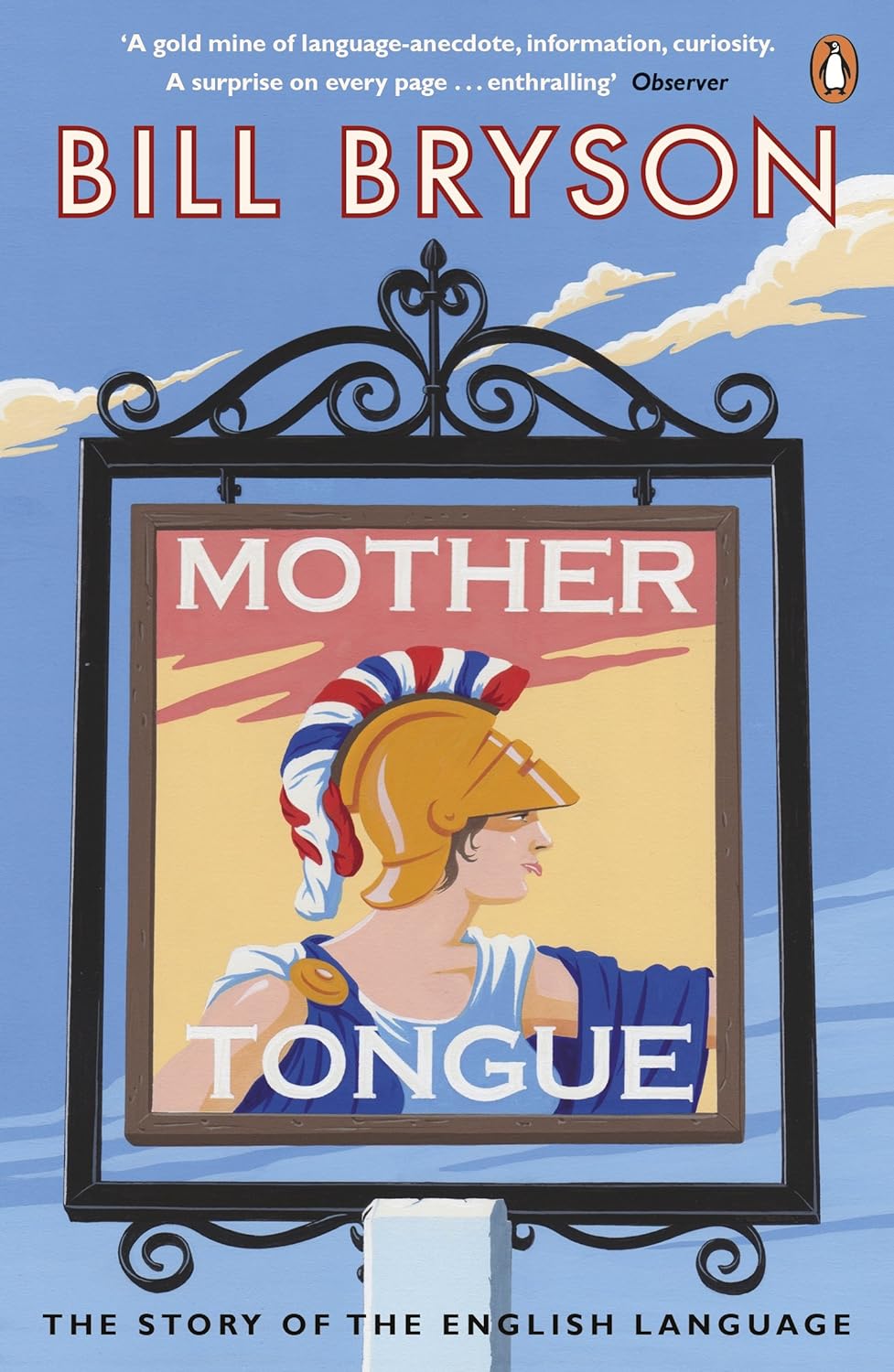
Mother Tongue: The Story of the English Language
FREE Shipping
Mother Tongue: The Story of the English Language
- Brand: Unbranded

Description
It gained popularity before being replaced by the Intelligent Pinyin method, which facilitates the standard phonetic representation of Chinese characters. However, I think that it is directed primarily to English native speakers, because they will be able to capture and better understand all the issues that the author raises.
But even setting issues like that aside, there are so many mistakes here, both in Bryson’s discussion of the English language itself and in his characterisation of the other languages he uses as comparatives.It made me wonder, though, since English is very much a dynamic language co-created together by the whole world depending on the generation, how much it will change in the next 100 years? Other travel books include the massive bestseller Notes From a Small Island, which won the 2003 World Book Day National Poll to find the book which best represented modern England, followed by A Walk in the Woods (in which Stephen Katz, his travel companion from Neither Here Nor There, made a welcome reappearance), Notes From a Big Country and Down Under.
My wife was lent this book by a British friend of ours, but I decided to read it as I've heard about Bill Bryson's popular travel books like Notes from a Small Island and book A Brief History of Everything, about his travels through England before moving back to the US after a long time in his adopted home. He recounts the triumph of Anglo-Saxon language over Celtic (even though many of England's place names preserve their Celtic roots), the impact of the Norman invasion (of 10,000 words, approximately 3/4ths are still in use including much of the language of nobility (duke, baron prince) and much language of jurisprudence (justice, jury, prison among others). According to some estimates almost two thirds of the American population, living on some 8o percent of the land area, speak with the same accent—a quite remarkable degree of homogeneity.The final bit of assholery is that he excuses British imperialism in Ireland and its policies both direct and indirect aimed at the destruction of the Irish language on the basis that, well, it’s given him more English-language literature to enjoy. From its mongrel origins to its status as the world’s most-spoken tongue; its apparent simplicity to its deceptive complexity; its vibrant swearing to its uncertain spelling and pronunciation, Bryson covers all this as well as the many curious eccentricities that make it as maddening to learn as it is flexible to use.
I'm a longtime fan of Bill Bryson, but I had never read this early nonfiction work of his and was delighted to see that my library had a copy of the audiobook. Or these instructions gracing a packet of convenience food from Italy: 'Besmear a backing pan, previously buttered with a good tomato sauce, and, after dispose the cannelloni, lightly distanced between them in a only couch. Bryson’s clearly lived in England long enough to have imbibed the British combativeness towards the French. JK Rowling aside, with communication technology becoming smaller, cheaper, and more powerful, I think we'll still be able to communicate two hundred years down the line.
Lack of structure aside, I really enjoyed reading this and will be reading more books by Bryson in the future. More than 300 million people in the world speak English and the rest, it sometimes seems, try to…’Only Bill Bryson could make a book about the English language so entertaining. Too bad the gems were scarce and some of the reading resembled the back-breaking labor involved in mining. To them there is crunchy snow, soft snow, fresh snow, and old snow, but no word that just means snow.
Nevertheless, the book itself is a bundle of joy of finding invariably humorous take on how word changed - even corrupted - over the course of time. Bryson eventually disagrees with Burchfield for many of the same reasons, though he was unable to cite the internet as a factor. The subject matter is not that hard, so I can only guess "The Mother Tongue" was written in such a hurry that you only consulted one or two sources, where it should have been five or six. I teach English as a foreign language but other than that linguistics and language learning is just a hobby, having said that, I know enough Irish, German, Czech, Russian and Spanish to know that the things he said about these languages are half truths or complete and utter codswallop. Consider the loss to English literature, if Joyce, Shaw, Swift, Yeats, Wilde, and Ireland's other literary masters have written in what inescapably a fringe language, their work will be as little known to us as those poets in Iceland or Norway, and that would be a tragedy indeed.Which does not change the fact that there are a lot of words that I do not know (and I'm fully aware of that). When he becomes enamored on a topic (such as the history of our houses in "At Home" or the history of our universe in "A Short History of Nearly Everything") Bryson digs up all kinds of interesting facts and stories and anecdotes and puts it all together in a delightfully interesting collection of essays. Then again, he seems to think that Pennsylvania Dutch is a form of pidgin English, so perhaps that’s unsurprising! So that's when the whole book fell apart for me, because if he couldn't get this part right, what other things might he have been wrong about? Ever since I learned to read, English has been my favourite language - I took to it like a duck takes to water (at least, I guess they take to it willingly, and that baby ducks are not paddled until their feathers fly by Mamma Duck to make them).
- Fruugo ID: 258392218-563234582
- EAN: 764486781913
-
Sold by: Fruugo
